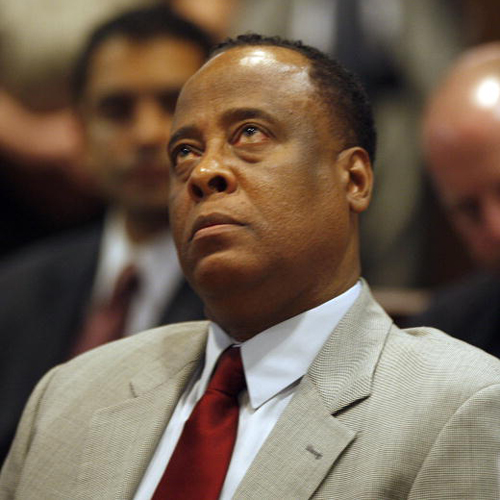Mesereau Remembers Michael

On Monday, November 7, 2011, Dr. Conrad Murray was found guilty of involuntary manslaughter in connection with the death of Michael Joseph Jackson. Though formal sentencing is scheduled to occur on Tuesday, November 29, 2011, Murray was hauled off to jail in handcuffs.
Obviously, despite what he and nurse-practitioner Cherilyn Lee said about Michael’s desire for propofol, jurors didn’t buy for a moment that the King of Pop finished every sentence with, “got milk?” And what about Murray’s one-hand chest compressions? I guess he’s a fan after all. One hand. One glove. One love.
Murray Murdered Michael: Murray gave Michael “a series of large doses of lorazepam” in conjunction with a continuous IV drip of propofol several hours before MJ’s death. According to one fan, a medical professional, this is a lethal combination.
“Why was Dr. Murray using lorazepam to treat Michael’s insomnia?” she asks anonymously. “It’s an anti-anxiety medication, not a sleep aid. Also, one of the side effects of lorazepam is that it has the potential to suppress the patient’s breathing. The addition of propofol only magnifies that effect, and any doctor would know that. (I believe he did.) So now the question is who ordered Dr. Murray to give Michael a lethal combination of drugs? He’s not the only person that should be on trial right now.”
Confused Carr?: Recently another fan wrote and respectfully asked how would I explain changing my position on certain details surrounding Michael’s passing. I responded: “In the world of journalism, news organizations try to get the news out as fast as they can and ‘initial reports’ are often wrong. Or, as more details are forthcoming, what was previously believed may be discarded. That’s why you hear wording like ‘developing story,’ ‘we’ll keep you posted,’ ‘here’s what we know,’ ‘we now know that,’ and so on.
“Because of my association with Michael, I have been and continue to be targeted and purposefully lied to, deceived, and fed misinformation. What is so shocking is that, over the years, I have learned that some of it originates from within his camp, and from people who knew Michael long before me (hence, the ‘creditable sources’)!”
And, by the way, if his middle name really is “Joe,” lots of documents will have to be changed. Even during the reading of the verdict he was called, “Michael Joseph Jackson.”
For the Record: Michael Joseph Jackson did not use drugs recreationally, so please resist the urge to place him in the category with certain other celebrities who ingested non-prescription drugs, or drugs unjustifiably prescribed by the cavalier actions of an irresponsible physician.
Exit Interview: Below is my concluding interview with Thomas A. Mesereau of the Law Firm of Mesereau & Yu:
Carr: Sum up your assessment of Michael Jackson.
Mesereau: I was very honored and privileged to be Michael’s lead defense counsel at a very important, tragic, and dark period of his life. It was a great honor for me and an experience that I’ll never forget. And I came through it with total respect for him as a human being, humanitarian, artist, and as a very inspirational and historical person. I have the greatest respect and affection for Michael Jackson. I think he was a wonderful person. He was in some ways too sensitive for a world that is very cruel and very harsh at times. I think he tried to maintain his humanity, sensitivity and creativity even when he knew what a target he was of charlatans, fakes, profiteers, exploiters [and] manipulators.
Carr: What role, if any, do you think his being raised as one of Jehovah’s Witnesses played in how he dealt with his trial?
Mesereau: Well, obviously it played a significant role in his life. … He revered his mother, who is a Jehovah’s Witness and a very active one as I understand it. She told me at one point she was going to Kingdom Hall four days a week. … I think he learned very good values as a Jehovah’s Witness, moral values. However, I know there were some conflicts.
Carr: Did you perceive [any hard feelings he may have had against the Witnesses]?
Mesereau: Not really. Not when I met him. .. I think he had great respect for Jehovah’s Witnesses, I always felt that.
Carr: Even though he was disassociated?
Mesereau: I always felt he did. … I felt he had great respect for the religion, and great respect for his mother’s love of the religion.
Carr: Thank you Tom Mesereau.
Peace and blessings to all. Amen.






